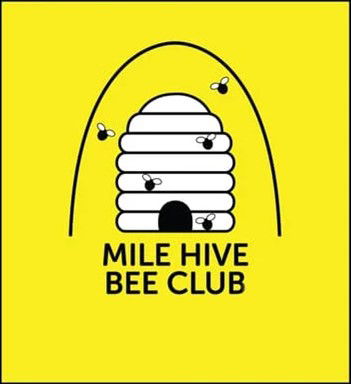Past FIELD TRIP Events
Matt and Sarah have graciously offered to provide Oxalic Acid vaporization demos on their hives at their apiary this Saturday Nov 4th from 9-11 am. If you wish to participate within 10 ft of this demo, you must be aware of precautions needed and be wearing personal protective equipment as outlined: Dual cartridge respirator (full or half mask with replaceable cartridges suitable for organic vapor/acid gas); bee suit, and impenetrable gloves. Note the following precautions when working with Oxalic Acid vaporization: Oxalic Acid can affect you when inhaled and by passing through the skin. Oxalic Acid is CORROSIVE and contact can severely irritate and burn the skin and eyes with possible eye damage. Inhaling Oxalic Acid can irritate the nose, throat and lungs causing coughing, wheezing and/or shortness of breath. Exposure to Oxalic Acid can cause headache, dizziness, nausea and vomiting, convulsions, coma and even death. Prolonged or repeated contact can cause a skin rash, pain, redness, blisters, and slow healing ulcers. Oxalic Acid may damage the kidneys. Exposure may affect the nervous system.
This field trip will be putting together robbing/moving screen kits (or picking up ordered pre-assembled screens), making sugar bricks and installing your honey gate onto food grade buckets (buckets are available at no cost!); be sure to bring your own honey gate if you want it installed on a food grade bucket
First of TWO field trips in September since we skipped August. You asked for it, and you get it--demonstration of honey harvesting with one of the clubs honey extractors. This will be a two frame hand-cranked extractor to demonstrate how it's done and prove that it truly is a sticky mess at times.
Since last month had to be canceled due to weather, we are going to try this again for July! How to: perform a varroa mite test, check the health of the bees, and check honey stores, including use of a refractometer. Hope to see you there!
How to: perform a varroa mite test, check the health of the bees, and check honey stores, including use of a refractometer. Hope to see you there!
Who: This would especially be good for newbees-to-3rd year beekeepers or those wanting to perfect the standard mite test; and, also for those interested to see how the drones are to be tested for Kathy's project! What: Checking the hive for readiness to split; modeling of mite test and drone counting Why: Timing pertinent re: spring build up and testing for mites When: Saturday, May 20th from 1-3 pm Where: 5201 Brighton Blvd, Denver, CO, USA (Map)
Pre-split inspection: what to look for in preparation to splitting your hives
First colony inspection of the year and recharging solitary bee boxes to prepare for new season
Talking through the basics. Hive set ups, location, tip and tricks, hive orientation, and Q&A








